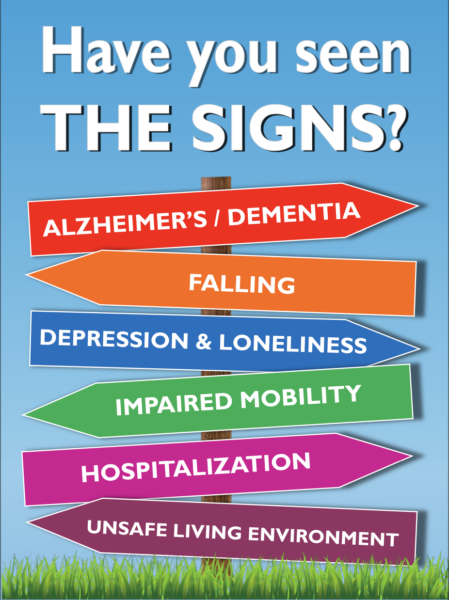Have you seen the signs? 5 Signs you must know!
January 12, 2023
Caring for an aging loved one can be a rewarding experience, but it can also be challenging. As a caregiver, it’s important to be aware of any changes in your loved one’s health or behavior and to know when it’s time to seek additional help. Here are some signs caregivers should look out for when caring for aging people:
- Changes in physical health: Keep an eye out for any changes in your loved one’s physical health, such as a decline in mobility, changes in appetite, or an increase in falls. These could be signs of a larger health issue that needs to be addressed.

- Changes in mental health: Aging can bring about changes in mental health, such as an increase in confusion or memory loss. If you notice any changes in your loved one’s mental health, it’s important to speak with a healthcare provider.
- Difficulty performing daily tasks: If your loved one is struggling to perform daily tasks, such as bathing, dressing, or cooking, it may be time to consider additional help. There are many resources available to assist with these tasks, such as in-home care or adult daycare programs.
- Lack of socialization: Isolation can be a common problem for aging individuals, especially if they are no longer able to drive or participate in activities they once enjoyed. If you notice a decline in your loved one’s socialization, it may be helpful to explore options for transportation or to find ways for them to connect with others in their community.
- Unusual behavior: Changes in behavior, such as an increase in aggression or a decline in personal hygiene, can be cause for concern. If you notice any unusual behavior, it’s important to speak with a healthcare provider to determine the cause and find ways to address it.
As a caregiver, it’s important to be vigilant and to seek help when needed. Caring for an aging loved one can be overwhelming at times, but there are many resources available to help you navigate this journey. Remember to take care of yourself and to seek support when needed.
Categories:
Aging, Caregiving
![Senior Options Inc. [logo]](https://www.senioroptionsfl.com/wp-content/themes/senioroptionsfl/images/logo.png)